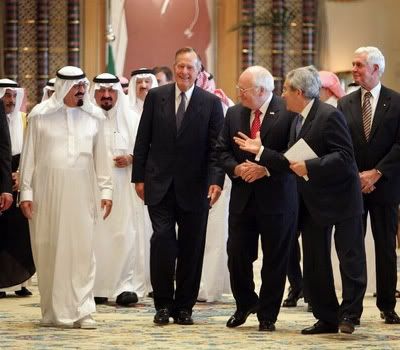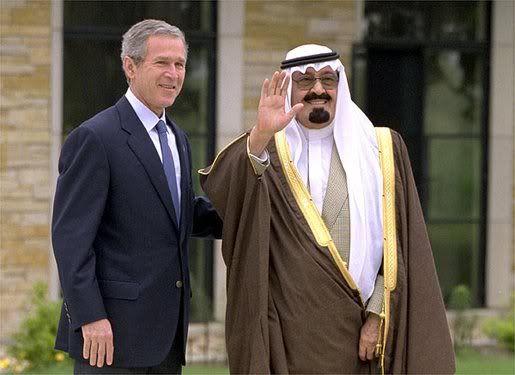The New York Times reports Foreign fighters in Iraq are tied to allies of U.S. Saudi Arabia and Libya, two countries the Bush administrations considers allies, provided “about 60 percent” of suicide bombers, attack facilitators, or other foreign fighters in Iraq over the past year. According to the U.S. military sources of the NY Times:
The data come largely from a trove of documents and computers discovered in [a predawn September 11th raid], when American forces raided a tent camp in the desert near Sinjar, close to the Syrian border. The raid’s target was an insurgent cell believed to be responsible for smuggling the vast majority of foreign fighters into Iraq. The most significant discovery was a collection of biographical sketches that listed hometowns and other details for more than 700 fighters brought into Iraq since August 2006.
Despite the number of foreign fighters, “the records also underscore how the insurgency in Iraq remains both overwhelmingly Iraqi and Sunni.” However, “Saudis accounted for the largest number of fighters listed on the records by far – 305, or 41 percent.” Despite Saudi Arabia’s claim to have target “would-be terrorists since Sept. 11, 2001, when 15 of the 19 hijackers were Saudi, some Saudi fighters are still getting through.” According to the military sources, “Libyans accounted for 137 foreign fighters, or 18 percent of the total”.
About four out of every five detainees in American detention centers are Sunni Arab, even though Sunni Arabs make up just one-fifth of Iraq’s population. All of the foreign fighters listed on the materials found near Sinjar, excluding two from France, also came from countries that are predominantly Sunni.
Because the Saudi government is such good friends with the leaders of the American government, “American military and diplomatic officials who discussed the flow of fighters from Saudi Arabia were careful to draw a distinction between the Saudi government and the charities and individuals who they said encouraged young Saudi men to fight in Iraq.” However, despite the parsing “American military officials said they also believed that Saudi citizens provided the majority of financing for Al Qaeda in Mesopotamia. ‘They don’t want to see the Shias come to dominate in Iraq,’ one American official said.”
 |
Syria is not as significant of a source of fighters as the military had estimated. “Only 56 Syrians, or 8 percent of the total” were listed in the data, not the 20 percent estimated by American officials “as recently as the summer”. “According to the rosters found in the raid, the third-largest source of foreign fighters was Yemen, with 68. There were 64 from Algeria, 50 from Morocco, 38 from Tunisia, 14 from Jordan, 6 from Turkey and 2 from Egypt.” There were no Lebanese listed. Iran is not supplying many fighters either.
American officials have accused Iran, the largest Shiite nation in the Middle East, of sending powerful bombs to Iraq and of supporting and financing Shiite militias that attack American troops. They also contend that top Iranian leaders support efforts to arm Shiite fighters. But whatever aid Iran provides to militias inside Iraq does not seem to extend to supplying actual combatants: Only 11 Iranians are in American detention, United States officials say.
Instead of looking toward Iran, the Bush administration would be better served by looking to their friends.
 |

3 comments
Author
to September 11, 2007, the Saudis are still providing terrorists to attack Americans.